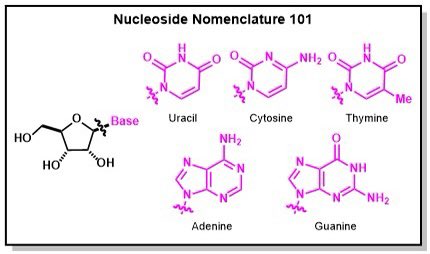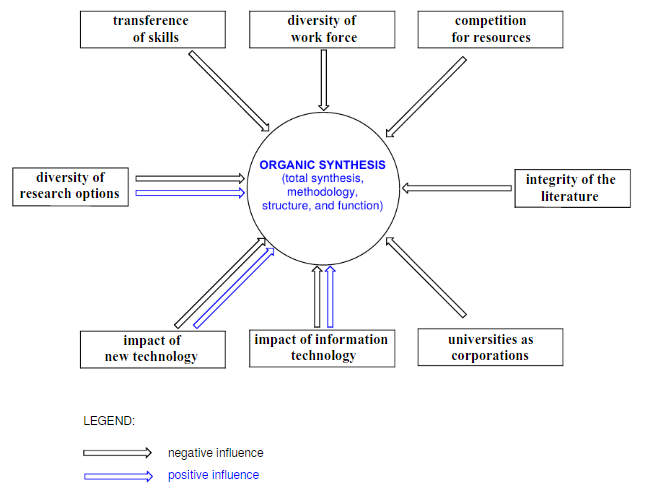
Last week, @PharmToTablePod dropped the 1st in a series of episodes dealing with nucleoside chemistry. In this three part series we will walk you thru different types of challenges with these molecules at different stages of drug discovery. #MerckChemistry podcasts.apple.com/us/podcast/pha…
Given that we are dedicating 3 episodes on this topic, I thought it would be good to offer some baseline nucleoside basics for you in case you aren’t familiar with this topic, in this 🧵 I’ll call #Nuceloside101
The relevance of these building blocks in pharma is largely driven by their importance in the biology, particularly RNA and DNA. These nucs vary by the hydroxylation pattern. #Nucleoside101 

Generally speaking nucleosides are composed of 2 major parts: the base and the sugar. Here is an example with uridine. #Nucleoside101 

There are common bases for nucleosides. Here are the most common. #Nucleoside101 

You may have heard of nucleoTIDES too! There is a difference. It’s the phosphorylation! #Nucleoside101 

In the episode we talk about specific chemistry as specific carbons on the ribose scaffold. These are the positions where unnatural therapeutic nucleosides are often modified for SAR studies. #Nucleoside101 

Finally, in the episode we also talk about “exotic” analogues. Some of the ones we discuss look like this. #Nucleoside101 

• • •
Missing some Tweet in this thread? You can try to
force a refresh





